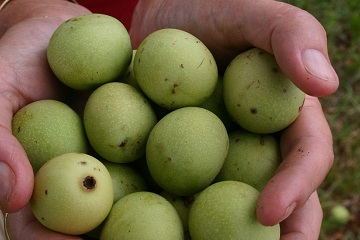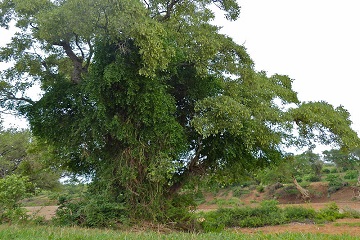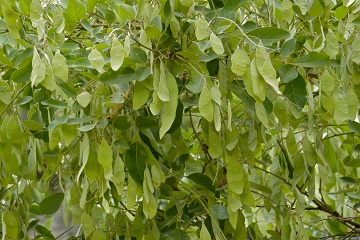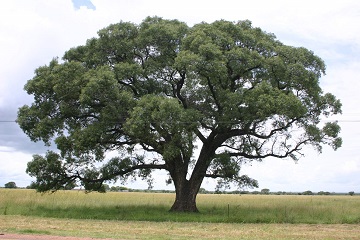
National Arbor Week 2019
Trees are very important to health on earth and are seen as the lungs of our planet. One of the most important functions of trees is to consume CO2 from the atmosphere and release oxygen to it through the process of photosynthesis. When we plant trees we can reduce our carbon footprint and limit the effects of climate change.
Arbor Week from 1 to 7 September, celebrates South Africa’s trees and raises awareness of their importance and need for the conservation of indigenous trees that are threatened by extinction. It also highlights the opportunities for sustainable economic development, community participation, poverty alleviation and job creation in forestry.
This year the theme for Arbor Month is "Forest and Sustainable Cities". The campaign wants to raise awareness of the importance of our indigenous forests and how we can promote sustainable cities. We support the campaign when we:
- protect our indigenous forests,
- prevent veld and forest fires,
- plant a tree to green our country,
- mitigate against climate change,
- plant indigenous trees that save water,
- use water-saving methods when planting trees, and
- introduce fruit trees into our food gardens.
Arbor Month promotes the planting of indigenous tree species. This is also an opportunity to increase public awareness of just a few of the 2 000 indigenous tree species in South Africa. This year the Sclerocarya birrea (botanical name) or marula tree has been selected from the list of common species and the Philenoptera violacea (botanical name) or Apple-leaf tree has been selected from the list of rare or uncommon species.
Why should we plant trees?
There are many benefits of planting trees:
- Trees reduce carbon dioxide and produce oxygen.
- Trees keep soil in place and help to prevent soil erosion.
- Trees can help block wind create shade.
- Trees make it better to live in cities by bringing nature to heavily populated areas.
- Trees can also increase the value of your property.
- Trees help with mental wellbeing.
- Fruit and nut trees provide food.
- Trees that provide fruit and nuts can create job opportunities.
- Trees can help with noise control by absorbing loud noises.
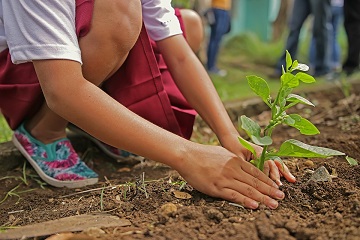 Reforestation
Reforestation
South Africa’s forests cover over about 31,1% of the country’s land surface area. The forestry sector employs around 158 400 workers with the forest sub-sector providing about 60 200 direct jobs and 28 000 indirect jobs. Forestry provides livelihood support to 692 000 people of the country’s rural population. The pulp and paper industry provides about 13 200 direct and 10 800 indirect employment opportunities. Some 20 000 direct workers are employed and 8 000 indirect in sawmilling, and 6 000 in the timber-board and 2 200 in the mining timber industries, while a further 10 000 workers are employed in miscellaneous jobs in forestry
Our forests are providing work and economic opportunities but this needs to be sustainable. We should ensure that more trees are planted to replace the ones used in these activities.
Various NPOs specialise in tree planting and reforestation. You can assist them by volunteering, donating and supporting their events.
For more information on reforestation, contact one of these NGOs:
- Greenpop
- Save Our Planet – Plant a Tree
- Food & Trees for Africa
- Precious Tree Project
- Plant a Million Trees Campaign
 Ways to encourage tree-planting
Ways to encourage tree-planting
Here are a few ways that you can make planting a tree more meaningful:
- You can give a tree sapling, small plant or seeds as wedding gifts to your guests to remember your special day.
- When a baby is born, give the parents a small tree so that they can plant it. It’s a nice way of watching the tree grow as the child does.
- When a loved one dies you can plant a tree in their memory. Alternatively, you can ask people to donate to one of the reforestation organisations to plant a tree in their memory.
- Start an environmental group at your school or religious organisation and plant indigenous trees on the premises.
You’ll have to ask permission of you want to plant trees on private property such as schools, religious buildings, etc. Contact your local municipality to find out if they have green projects that you can get involved in.
Greening projects for schools and community organisations
Kirstenbosch National Botanical Garden: Outreach Greening Programme
The Outreach Greening Programme works with self-motivated schools and community organisations to establish indigenous water-wise gardens. It aims to provide learners, educators and community members with the knowledge and practical horticultural skills required to plan, establish, maintain and extend indigenous gardens. The programme also encourages ecological awareness, environmental responsibility and economic empowerment.
Contact
Kirstenbosch National Botanical Garden
Biodiversity Education and Empowerment Programme
Roleen Ellman
Deputy Director: Biodiversity Education and Empowerment Directorate
Tel: 021 799 8677
Fax2email: 086 574 7305
Sally Hey
Principal Environmental Education Officer: Co-ordinator – Biodiversity Education Programme
Tel: 021 799 8676
Fax2email: 086 574 7317
Zane Matthews
Co-ordinator – Outreach Greening Programme
Tel: 021 799 8819
Cell: 072 8286 579
Jaqueline Loni
Senior Provisioning Administrative Clerk
Tel: 021 799 8670
Shaun Jackson
Outreach Bus Driver
Tel: 021 799 8670
Karoo Desert National Botanical Garden: Raising Awareness
A minimum of six calendar days/weeks are celebrated with schools either at the Garden or at the schools:
- Water Day/Week
- Wetlands Day/Week
- Biodiversity Day/Week
- Environment Day/Week
- Arbor Day/Week
- Bird Week
Contact
Eunice Jurgens
Senior Environmental Education Officer
Tel: 028 272 9311
Fax: 028 272 9333
Cell: 079 393 8730
Fax2email: 086 588 9526
Harold Porter Botanical Garden
Biodiversity Education and Empowerment Programme
Contact:
Eunice Jurgens
Senior Environmental Education Officer
Tel: 028 272 9311
Fax: 028 272 9333
Cell: 079 393 8730
Fax2email: 086 588 9526
Highly interactive, fun-filled learning programmes are facilitated to a range of beneficiaries – learners; youth and community groups; students from higher education institutions; and adults. The programme is divided into garden-based school programmes and other guided groups.
Contact:
Tebogo Cyprian Mathaba
Senior Environmental Education Officer
Tel: 012 843 5085/5186/5000
Cell: 083 369 8265
Fax2email: 086 555 9081
Johannes Nkosi
Senior Administrative Clerk
Tel: 012 843 5186
Environmental Interpretation Programme
Each of SANBI’s nine gardens has a staff member responsible for interpretation, and their duties include conducting guided tours, designing interpretive brochures, special plant labels, story boards and setting up touch tables and interactive displays. Their duties also include informal visitor liaison, giving talks on specific subjects and organising and co-ordinating interesting environmental educational events.
Contact:
Linette Ferreira
Principal Interpretation Officer
Tel: 012 843 5053
Fax: 086 555 907

